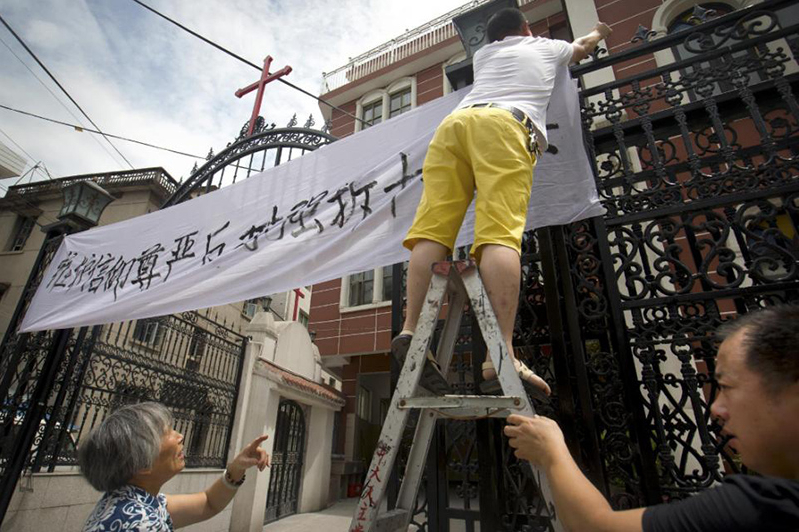
There is a secret government conference taking place in Beijing later this week, presumably to evaluate the future of Christianity in China. Many believe that the conference would discuss how to create a more "submissive" church.
The Guardian reports that with a growing number of Chinese Christians, many believe that the Chinese government now feels threatened. Some said that the Chinese Christians are now much bigger in number compared to the 87-million member Communist Party. This is why the conclave taking place in Beijing today looks suspicious to some, especially since the government-controlled Institute of World Religions refuses to divulge any details of the meeting's agenda.
According to Yang Fenggang, director of Purdue University's Centre on Religion and Chinese Society, most Chinese Christians believe and worry that the conference is just one of the many activities that the government has to create a church that is more "submissive" to the party. He added that "it is clear that the top leaders feel unease with Christianity."
An underground pastor claimed that the government is indeed looking to have a stronger management over the church. "I don't believe the government will close the church, but I do believe they want to manage it," shared the pastor, who did not want to be named. "I don't think they will control the doctrine. The government has no interest in what you preach. They are just worried about if you are against the party."
The conference, called the "Sinicisation of Christianity," is likely to have religious affairs officials, academics and members of China's official church as the main participants.
This summer, Chinese President Xi Jinping launched an unprecedented crackdown against human rights lawyers, believing that they have the power to undermine the power the Community Party has. Recent news also showed that an increasing number of Chinese Christians are now worrying that they are being prosecuted under the government's guise of hunting down "evil cults."
Analysts and religious leaders concur that Christianity is increasingly targeted not because of its teachings and other doctrinal matters but because of the party's fear of being undermined politically. Eva Pils, a human rights expert from King's College London, claimed that the fight against Christianity is all about "loyalty and power" rather than religion.
While for years there was reluctance to target Chinese Christians for fear of international censure, things are now changing. Not only is the President much more firm on this campaign, but the international arena also cannot do and does not want to do anything about China's activities because of its economic power.






